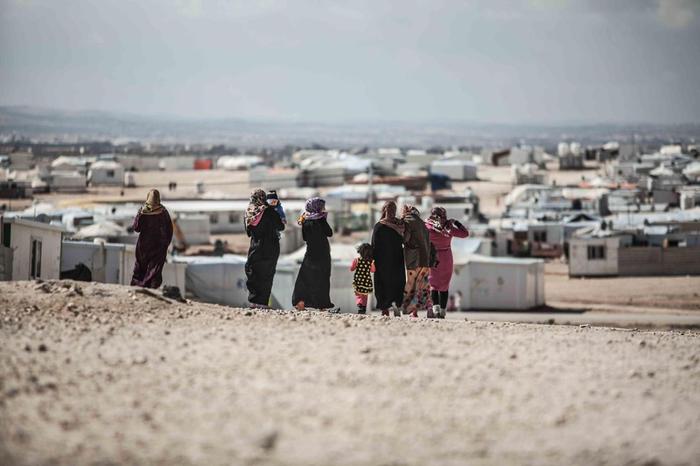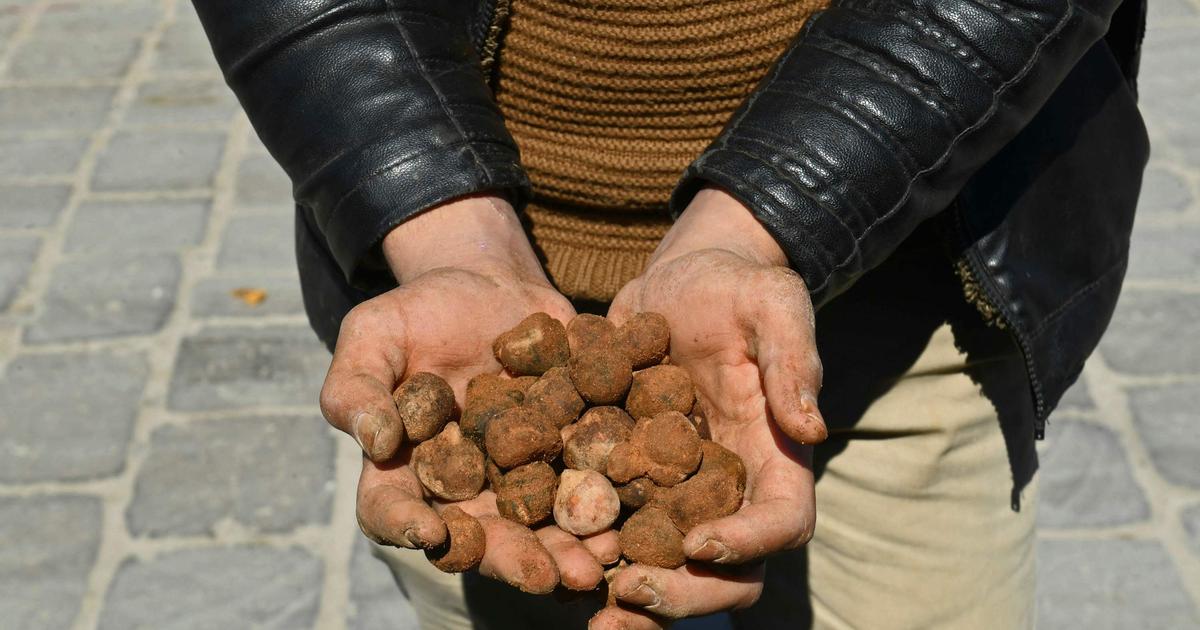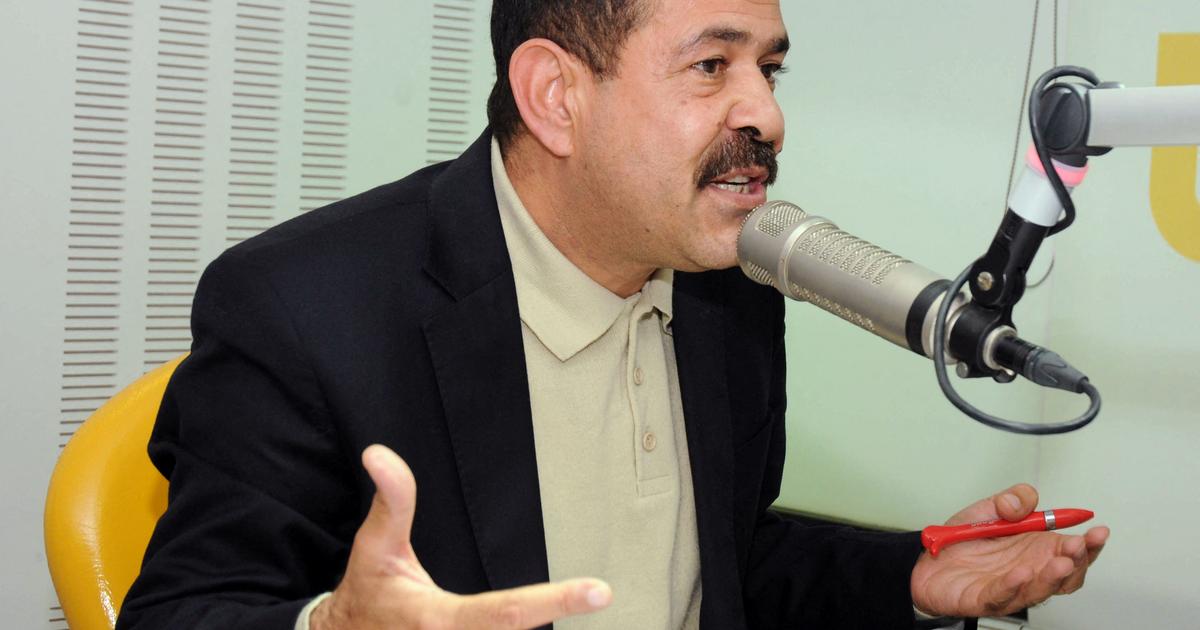The Government has decided to repatriate the wives and widows of four jihadists of the Islamic State (ISIS) and their Spanish children, interned in prison camps under the control of Kurdish militias in Syria since Baguz was liberated in March 2019, the last stronghold of the Caliphate that Al Bagdadi proclaimed in 2014 in Mosul (Iraq), according to government sources.
They are four women (Yolanda Martínez, Luna Fernández, Lubna Miludi and Loubna Fares) and 16 children —the oldest, 15 years old;
the youngest, already born in captivity, of only three—, who survive in precarious, unsanitary and highly insecure conditions in northeastern Syria.
Yolanda and Luna are in the Al Roj prison camp, next to the border with Turkey, and Lubna is in the Al Hol camp, near the border with Iraq.
These centers, where women and children are held indefinitely without judicial control, have become new
guantánamos
in the middle of the Syrian desert.
These three women, all of Spanish nationality, have asked to return to Spain with 13 minors in their care who have been identified and located.
The eldest of them was separated from his mother and interned 21 months ago in a correctional facility for children of ISIS fighters.
On the other hand, the fourth prisoner, Loubna Fares, a Moroccan national but the widow of a Spanish citizen, escaped in February 2020 with her three children from the Al Hol camp and since then her whereabouts have been unknown.
The repatriation of women and minors is a complex diplomatic-military operation in which various ministries are involved, including Defense.
Government sources say that the goal is for them to be back in Spain before the end of the year.
When they arrive, they must appear before the National Court, which links them to the jihadist cell Al Andalus Brigade, to which their husbands allegedly belonged.
They could be accused of having settled in a foreign territory controlled by a terrorist organization in order to collaborate with it, an offense punishable by up to five years in prison under the Penal Code.
The four assure that they traveled to the Caliphate in 2014 deceived by their husbands and that they did not fight or participate in jihadist actions.
The judge must decide whether to withdraw custody of their children, although the grandparents residing in Spain have already come forward to ask to take care of them.
Social services must guarantee that minors receive health, educational and psychological care upon arrival in Spain and monitor their integration process in the medium term to detect whether they have been subject to indoctrination.
desire to return
The Spanish Government had so far refused to repatriate its nationals, despite the fact that, in April 2019, Martínez, Fernández and Miludi already expressed their desire to return to Spain.
“All we want is to get out of here.
They cannot condemn us for taking care of the house and our children in the Islamic State”, they declared to the journalist of EL PAÍS Natalia Sancha, who managed to locate them in the Al Hol field.
"I did nothing.
If the law really judges clearly in Spain, why are they going to send a woman to prison who has suffered so much and has been at home with her children?" added the first of the three, all covered with a niqab (which just uncover the eyes).
Some 65,000 relatives of jihadists were interned in this camp after the fall of the Caliphate, 95% women and children: some 30,000 were Iraqis, 25,000 Syrians and 10,000 of another fifty different nationalities.
The fear that they were radicalized and could bring the seeds of jihadist ideology back to their countries of origin made many governments resist repatriating them.
In Spain, the Ministry of the Interior also imposed this criterion on that of the then Foreign Minister, José Borrell, in favor of bringing them back in October 2019.
The Kurdish-Arab militia SDF (Syrian Democratic Forces), in charge of the camps, has been demanding for years that Western governments take care of their citizens, warning of the impossibility of maintaining these centers indefinitely and of the risk that ISIS seize your internal control.
The United States, an ally of the Kurds, has also pressured European governments to assume their responsibility.
The situation has evolved in recent months.
On the one hand, Spain had been left alone in its refusal to repatriate its nationals, since the vast majority of EU countries (Germany, Belgium, Sweden, Holland, Finland, Italy, Ireland and Norway) have done so at less partially.
Last July, it was estimated that 154 European women, including Spanish women, remained in the fields in northeastern Syria.
On the other hand, the progressive deterioration of living conditions in the camps has placed the health and physical integrity of the minors at grave risk, without receiving education or medical attention and in unsanitary and overcrowded conditions.
Abdurrahman Aabou Fernández, 13 years old, son of the Madrid jihadist Luna Fernández Grande (34 years old), has been forced to enter a correctional facility for "children of ISIS".
Photo: Courtesy of the family.
On July 5, France, the country with the most internal citizens in the camps under Kurdish control, changed its policy by repatriating 16 women and 35 minors.
Until then, the French authorities had refused to repatriate adult women, arguing that they should be tried in Syria or Iraq, where, according to experts, the minimum conditions for this are not met, and only accepted orphaned or separated minors. from their mothers.
This change was anticipated in little more than two months to the sentence of the European Court of Human Rights (ECHR) that urged France to "re-examine without delay" the demands to repatriate from Syria the daughters and grandchildren of two French couples.
Although the high court did not enshrine a general right to repatriation, it did stress the duty to deal with those cases in which there is a risk to physical integrity, especially minors.
In February, the UN Committee on the Rights of the Child had already accused Paris of "violating" the rights of French minors by not repatriating them.
The parents of three of the Spanish women held in the fields under Kurdish control addressed the Petitions Committee of the European Parliament last December, through the lawyer José Luis Laso, to demand the repatriation of their daughters and grandchildren.
Six months later, the European Commission replied that the EU Strategy on the Rights of the Child recognizes the "particular vulnerability" of the almost 30,000 internal minors in the camps in northwestern Syria, "who suffer the trauma of the conflict and conditions of extremely hard life”;
and that "the return of foreign terrorist fighters and their families to their respective Member States" is a priority area for the Union, which supports return programmes.
However, while acknowledging that “the sons and daughters of foreign terrorist fighters in Syria must be considered primarily as victims” and “their needs addressed”, the European Commission passed the buck to the respective governments by noting that “it is up to the Affected Member States decide on the repatriation of people who have their nationality.
As early as March last year, the European Parliament approved a resolution expressing its "deep concern about the deteriorating humanitarian, health and security situation in the camps in north-eastern Syria, in particular Al Hol and Al Roj, which they continue to be nurseries for radicalization.”
And it called on the EU Member States "to protect minors who are nationals of the Union" and "repatriate all European children, taking into account first and foremost their family situation and the best interest of the minor."
A wife, three widows and 16 children
The wives and widows of jihadists and their children that Spain wants to repatriate are the following:
Yolanda Martinez Cobos.
37 years old from Madrid.
Her husband is Omar El Harshi, a Moroccan from Ceuta who is a Spanish citizen and is imprisoned in a Kurdish prison.
She is in Al Roj with her four children, ages 12, seven, five and three.
Luna Fernandez Grande.
33 years old from Madrid.
Widow.
With five children.
The eldest, 15 years old, has been held since February 2021 in a correctional facility for children of ISIS fighters in Syria.
She is in the Al Roj detention center with her four other children: one aged 10 and three under the age of six.
The youngest, three years old, was born in the Al Hol camp, where she was initially interned.
Luna is in charge of three other minors who are orphans of Mohamed El Ouriachi, a citizen of Moroccan origin and Spanish nationality.
They are 10, nine and seven years old, respectively.
Lubna Mohamed Miludi
, 28 years old from Ceuta.
Widow.
She is in Al Holl with her six-year-old son.
Lubna Fares
, 40 years old, born in Casablanca (Morocco).
She is the widow of the Spanish citizen of Iranian origin Navid Sanati.
She ran away in February 2020 from Al Holl with her three children aged 10, eight and six.
Her whereabouts are unknown.
Subscribe to continue reading
Read without limits
Keep reading
I'm already a subscriber

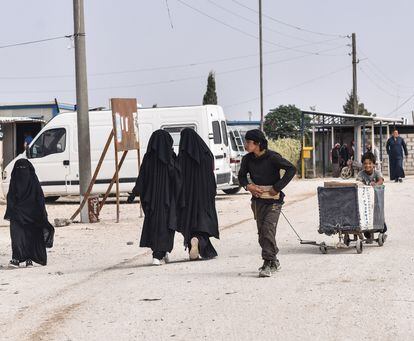
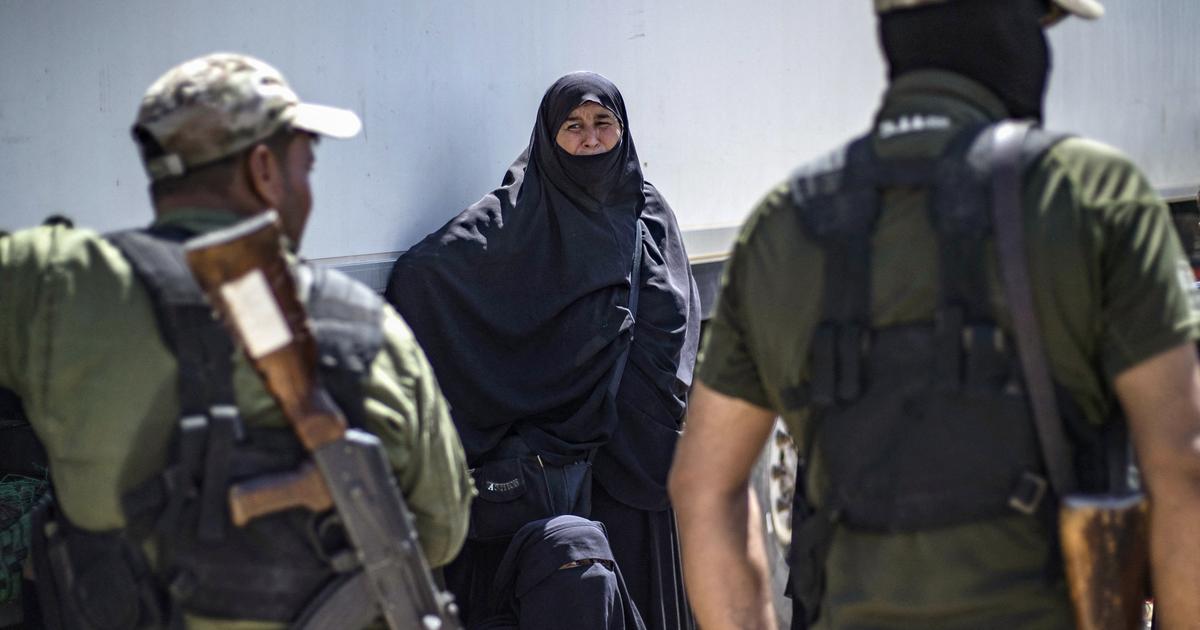
/cloudfront-eu-central-1.images.arcpublishing.com/prisa/CFWADV5MKXENG6LRKICUVSOWH4.jpg)
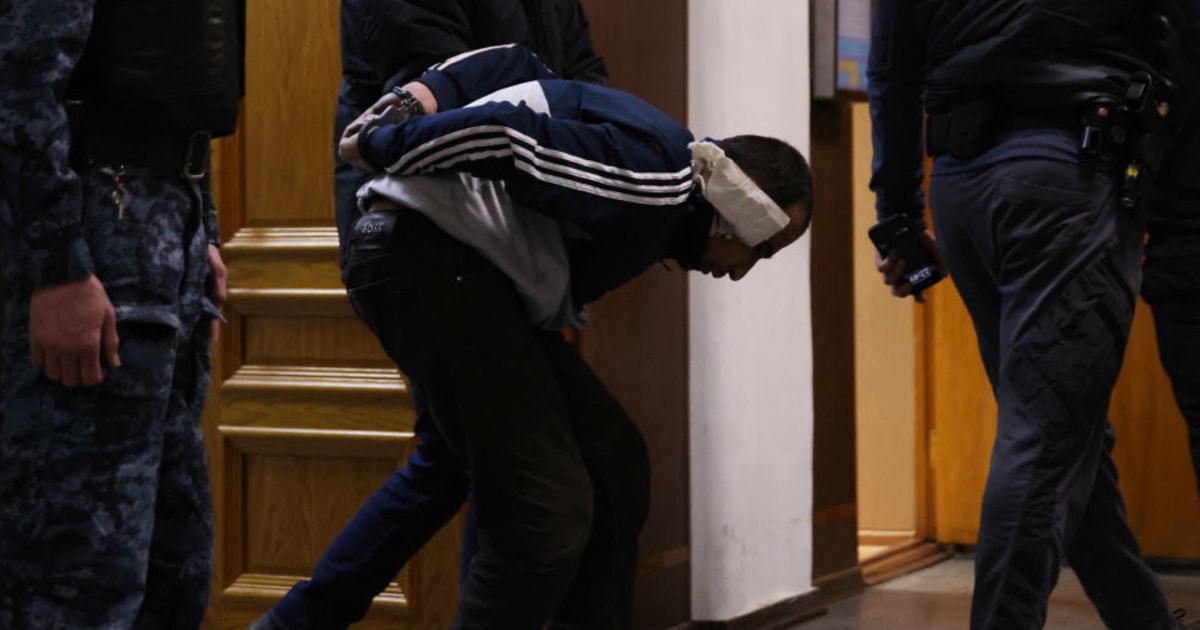
/cloudfront-eu-central-1.images.arcpublishing.com/prisa/RRNMIJ67Y5CGFPSKI3ZS623YUY.jpg)
